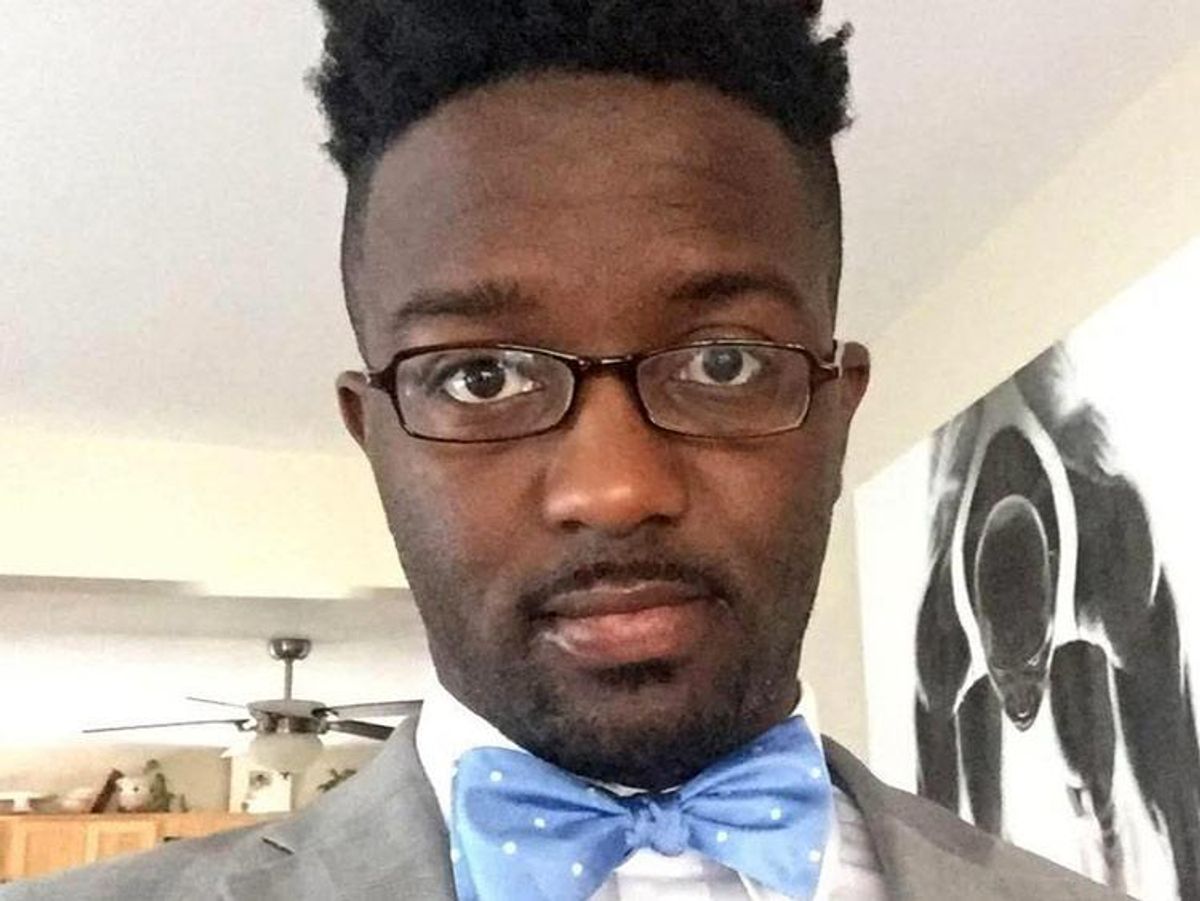Stigma
WATCH: Prominent HIV+ Activist Speech at Democratic Convention

THRIVE SS founder Daniel Driffin is the first HIV-positive person to address the DNC in 16 years.
July 27 2016 5:54 PM EST
By continuing to use our site, you agree to our Privacy Policy and Terms of Use.

THRIVE SS founder Daniel Driffin is the first HIV-positive person to address the DNC in 16 years.
UPDATED 3pm PST: Just added a video of Driffin speaking live at the convention today on CSPAN at bottom of interview.
The Democratic National Committee has become the first to adopt HIV anti-criminalization language as part of its official platform. In addition, the Democrats' national convention will feature activist and Morehouse School of Medicine student Daniel Driffin as a keynote speaker — the first HIV-positive speaker to address a major political convention in 16 years. Driffin, who takes the stage Wednesday night, is the founder of THRIVE SS, an organization focused on ending the “explosion of HIV in the South” by reducing disparities, increasing activism, and improving health equity for people living with HIV.
“The South constitutes less than 40 percent of the U.S. population,” Driffin tells Plus. “But accounts for more than 57 percent of infections.”
As we reported in our special coverage on the epidemic in Southern states, this ends up disproportionately impacting African-Americans.
Driffin also serves as co-chair of the Task Force to End AIDS in Fulton County, Georgia. He’s been a policy advisor for Georgia Equality and founded Undetectables Atlanta, a group of over 400 gay and bisexual men with HIV.
Although it’s been over a decade since an HIV-positive person spoke at a Democratic National Convention, Driffin is hardly the first. That historic moment occurred at the 1992 Democratic Convention when then Arkansas Governor Bill Clinton invited two HIV-positive people to address the crowd. After the late Elizabeth Glaser (founder of the Pediatric AIDS Foundation that now bears her name) and Clinton’s HIV-positive campaign aide Bob Hattoy both spoke, there wasn’t a dry eye in the house — and it cemented Clinton’s LGBT support. Mary Fisher, the straight mother of four, spoke to the Republican National Convention that same year, in an equally moving speech. Phill Wilson, founder of Black AIDS Institute, spoke in 1996 while activist Jesse Milan spoke in 2000. But, in the ensuing 16 years, there hasn’t been an HIV-positive speaker at the Democratic Convention.
So, was it the influence of Bernie Sander's progressive campaign that led to HIV being added to the party platform and an HIV-positive speaker appearing on the convention roster? Driffin doesn’t think so.
“Personally, I was disappointed in Sanders’ dealing with the HIV community,” the 30-year-old gay man activist says. That sentiment is shared by other HIV activists, some of whom maintain Sanders' campaign staff put out misleading statements after postponing several meetings with them. “Their reluctance to meet with us was baffling to me. I felt as though [Hillary] Clinton gave a better presentation and reception towards [us] at the last AIDS conference in Washington D.C. and in this election cycle.”
Clinton certainly made some positive moves during her presidential campaign, including making a video appearance at the HIV is Not a Crime II conference, where she pledged to reform HIV criminalization laws, something that made it into the platform. But, as Karen Ocamb reported in Huffington Post, Clinton blundered earlier this year when she spoke about the recently-deceased Nancy Reagan, giving the former first lady credit for helping people with AIDS. This upset HIV activists, because it was President Ronald Reagan’s refusal to address the epidemic that helped fuel the crisis and doomed thousands to death. In the wake of Clinton’s statement, a group of HIV activists from over a hundred organizations came together to push for HIV to be addressed in the party platforms and for there to be an HIV-positive speaker at both conventions. The group sent a letter (read it here) to every presidential campaign asking for a meeting with the candidate and “a commitment to end AIDS as an epidemic in the United States by 2025.”
Clinton and Sanders both met with activists in May, but reaction to Clinton’s message (“We do have the tools to end this epidemic once and for all, but we need to rededicate ourselves to fighting HIV and AIDS, and leaving no one behind,”) were more positive than the response Sanders received, despite his calling for broader access to generic medications.
The final HIV and AIDS Platform adopted by the Democratic Party notes, “an AIDS-free generation is within our grasp. But today far too many Americans living with HIV are without access to quality care and too many new infections occur each year.” To address these issues, the party pledges to “implement the National HIV and AIDS Strategy; increase research funding for the National Institutes of Health; cap pharmaceutical expenses for people living with HIV and AIDS; reform HIV criminalization laws; and expand access for harm reduction programs and HIV prevention medications, particularly for the populations most at risk of infection.”
In conclusion, the platform promises, “Democrats will always protect those living with HIV and AIDS from stigma and discrimination.”